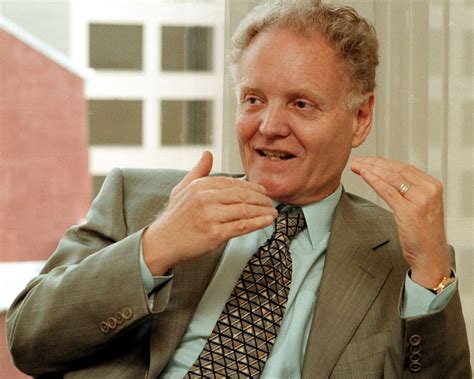A Quote by Richard Thaler
I practice what has come to be called behavioral economics.
Quote Topics
Related Quotes
How should the best parts of psychology and economics interrelate in an enlightened economist's mind?... I think that these behavioral economics...or economists are probably the ones that are bending them in the correct direction. I don't think it's going to be that hard to bend economics a little to accommodate what's right in psychology.
In the world of traditional economics, it shouldn't matter whether you use an opt-in or opt-out system. So long as the costs of registering as a donor or a nondonor are low, the results should be similar. But many findings of behavioral economics show that tiny disparities in such rules can make a big difference.




























